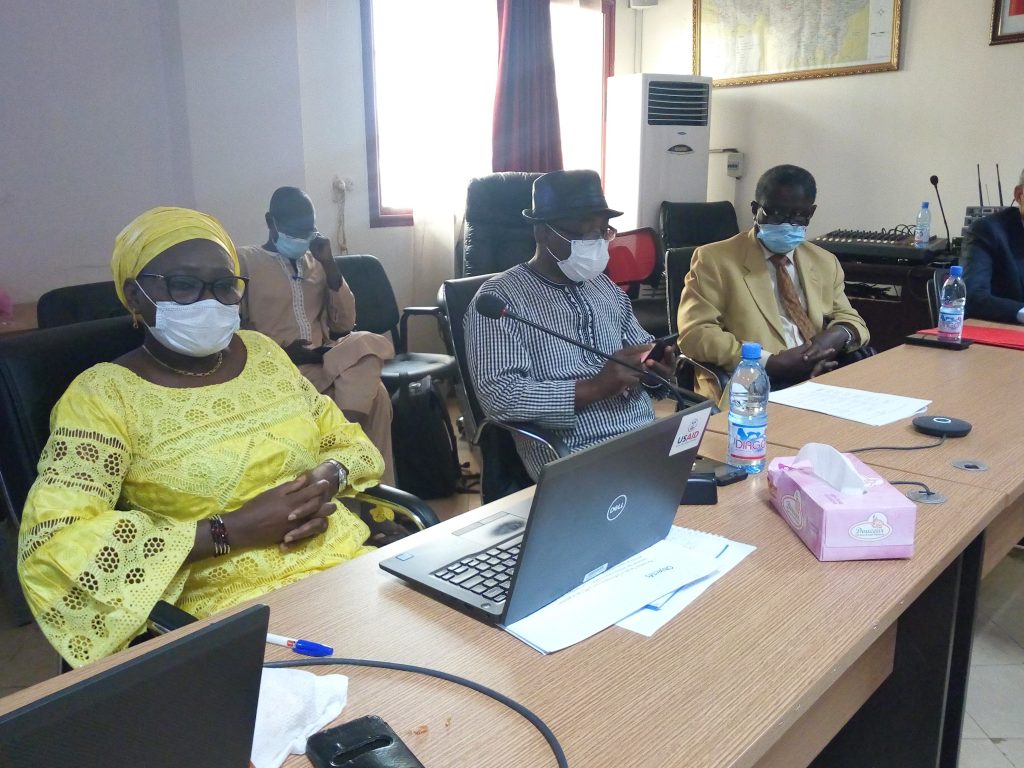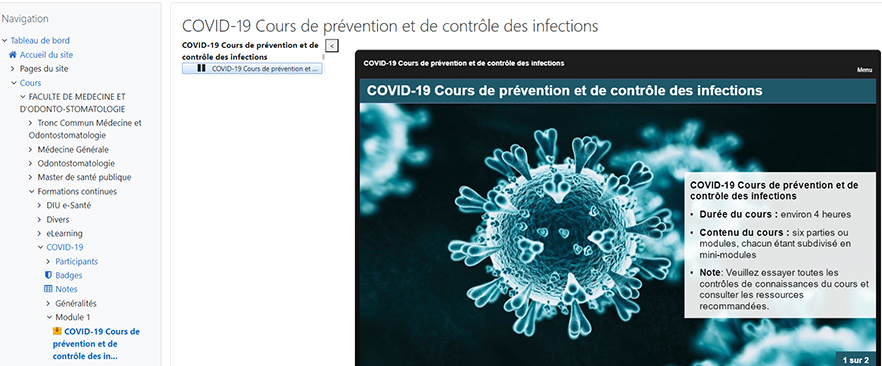Mali launches its e-learning platform on infection prevention and control
To read this article in French, please click here.
On February 25, 2021, Dr. Fanta Siby, Mali’s Minister of Health and Social Development, launched the country’s e-learning platform for continued education on infection prevention and control (IPC), developed with technical and financial support from the USAID Medicines, Technologies, and Pharmaceutical Services (MTaPS) Program.
Participants at the launch event included representatives of various government directorates and agencies; hospital directors; regional and district health directors; representatives of international organizations including USAID, the WHO, UNICEF, and the FAO-Emergency Centre for Transboundary Animal Diseases; stakeholders involved in the fight against antimicrobial resistance (AMR); and partners from the animal and environmental health and public education sectors.
In 2020, the Direction Générale de la Santé et de l’Hygiène Publique (Directorate General for Health and Public Hygiene) and the Groupe de Coordination Multisectorielle National de lutte contre la Résistance aux antimicrobiens (National Group for Multisectoral Coordination to Combat Antimicrobial Resistance), in collaboration with MTaPS, developed a toolkit for infection prevention and control training.
Unfortunately, the COVID-19 pandemic has put significant stress on education systems at all levels and hampers physical contact, which forces professionals to find alternative and innovative ways to continue to train health professionals.
“With diseases including COVID-19 and Ebola, we need to ensure that our system is resilient so we can continue to offer quality care for all. Health workers are on the frontline and if we don’t take precautions, we [health professionals] can be infected and impacted. To be able to have better knowledge, we can now use this e-learning platform […] which is an efficient and trustworthy tool,” said Dr. Siby, highlighting the importance of e-learning.
While presenting the objectives of the e-learning modules, Dr. Safoura Berthé, MTaPS Mali Country Director, said that “the e-learning approach will help increase access to training to more professionals in the socio-sanitary domain and it will contribute to reaching the third objective of the AMR National Action Plan to improve hygiene and sanitation.”

Left to right: Dr. Safoura Berthé, MTaPS; Pr. Seydou Doumbia, Dean of FMOS; and Pr. Youssouf Coulibaly, University Hospital of Point G. Photo credit: Dr. Ousmane Traoré
The e-learning courses include 10 standard IPC modules and 6 IPC-COVID-19 modules and are available on the websites of the Faculté de Médecine et d’Ondostomatologie (Faculty of Medicine and Ondostomatology, FMOS); the Institut National de Formation en Science de la Santé (National Institute for Health Science Training); and the Direction Générale de la Santé et de l’Hyigène publique (Directorate General for Health and Public Hygiene), reaching university students and professionals specializing in AMR.
Sharing his thoughts on how the e-learning courses will help build health staff capacities, Dr. Aligui Yattara, Representative for the USAID Director for Health Office, said that “efficient human resources are essential to offer quality care. This is the reason why USAID provided these types of approaches to train, in a sustainable way, key populations and provide the opportunity for people to study regardless of their availability.”
In addition to Mali, MTaPS is working with the governments of four other West and Central African countries—Burkina Faso, Cameroon, Côte d’Ivoire, and Senegal—to develop an e-learning program on IPC and strengthen AMR capacity in the region as part of its Global Health Security Agenda mandate.

Screenshot of the FMOS/Faculty of Pharmacy e-learning platform.